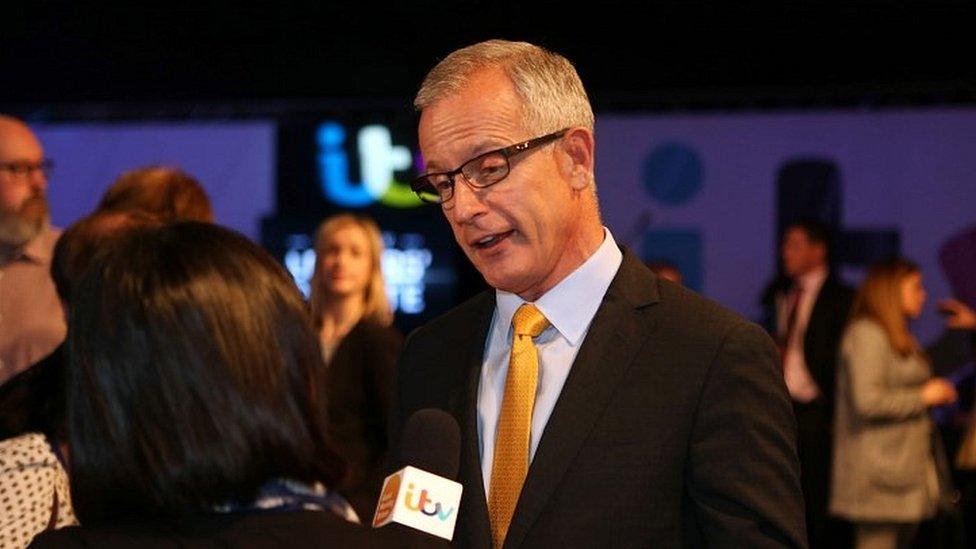Tim Farron: Lib Dems Ed Davey and Norman Lamb in running
- Published
- comments
Tim Farron: Living as a Christian and being a political leader 'has felt impossible'
Former ministers Sir Ed Davey and Norman Lamb are expected to contest the Liberal Democrat leadership following the resignation of Tim Farron.
Mr Lamb, a former care minister, said: "I'm thinking about it," while ex-business secretary Sir Vince Cable said: "I haven't ruled anything out."
Another former minister, Jo Swinson, is the bookies' favourite.
Mr Farron quit saying he could no longer reconcile his Christian faith with his leadership of a liberal party.
Former deputy leader Sir Simon Hughes said his comments were "brave".
Speaking on BBC Radio 4's Today programme, Sir Simon said: "Where there are issues which are very controversial within that faith community it became unfairly difficult that Tim was put in the firing line and felt that he couldn't adequately do justice to his faith while upholding the liberal values which he has argued for all his life."
During the campaign, Mr Farron was asked repeatedly in media interviews to clarify his views on gay sex but did not, to begin with, answer directly.
He later insisted that he did not believe it was a sin and that, while he believed political leaders should not "pontificate on theological matters", it was right to address the subject as it had become "an issue".
Speaking on BBC Radio 5 live, Lib Dem MP Alistair Carmichael criticised the media for repeatedly questioning Mr Farron on the subject.
"To be asked once would have been legitimate, to be asked time after time after time in the way that Tim was - I think that does have an element of bullying in it," he said.
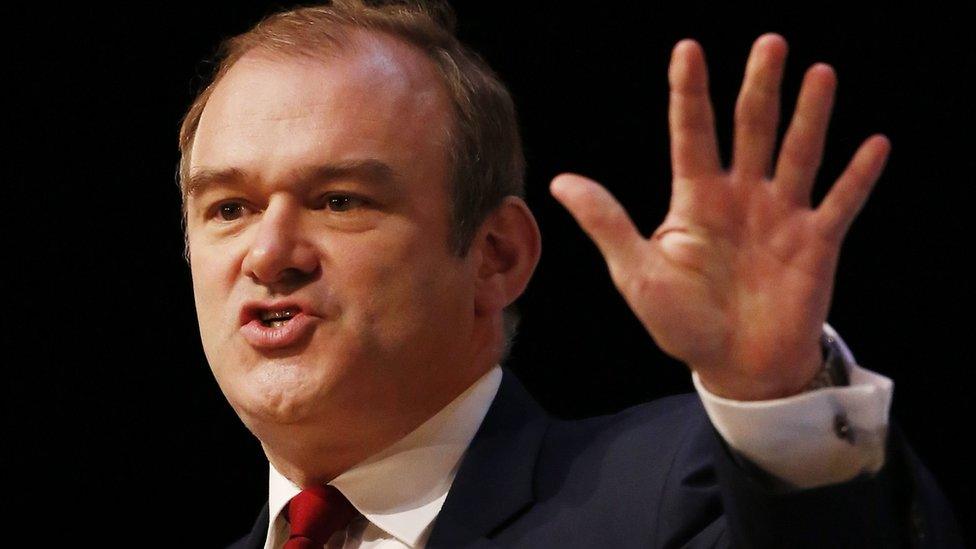
Sir Ed Davey is the former energy secretary
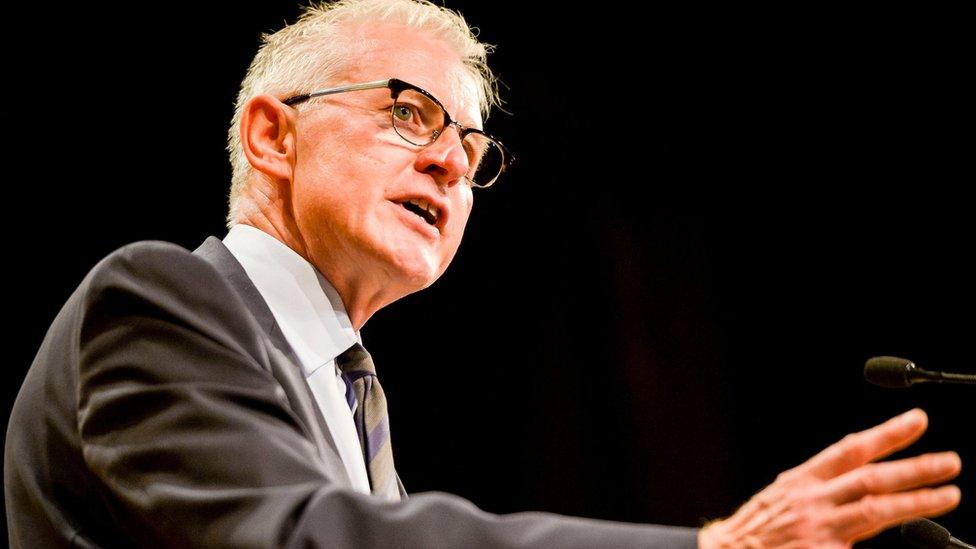
Norman Lamb lost out to Tim Farron in the last leadership contest
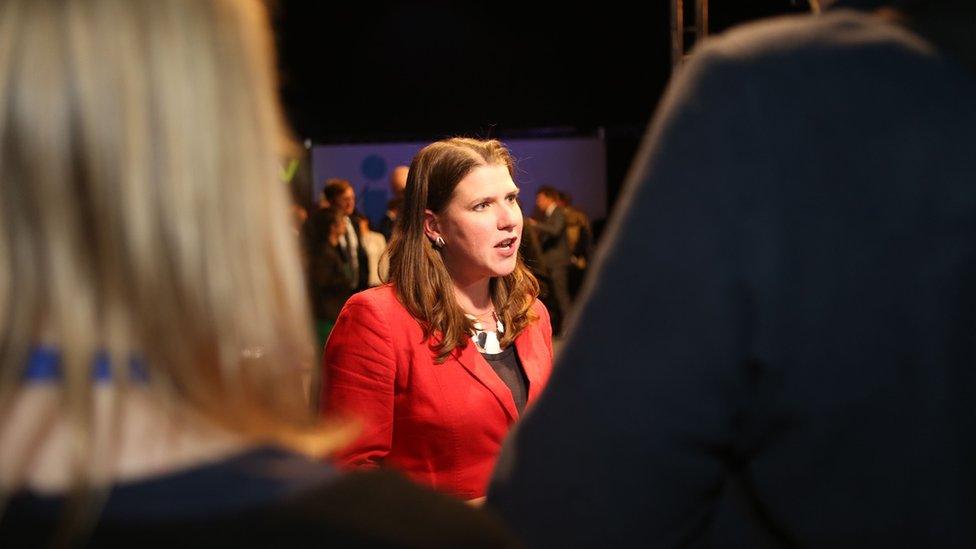
Jo Swinson regained her East Dunbartonshire seat at the general election
Ms Swinson is a former business and equalities minister who regained her seat at the general election, Sir Ed is the former energy secretary who also returned to Parliament last week, and Mr Lamb, a health minister under the coalition government, lost out to Mr Farron in the last leadership contest.
Sir Vince told The Independent: "I haven't ruled anything out. I'm consulting colleagues to get their views on what is the next best step for the party."
But BBC assistant political editor Norman Smith said while the 74-year-old may seek to lead the part for a couple of years, it's unlikely he would contest the next election.
Mr Lamb told BBC's Question Time: "It's a week since we emerged from the general election - completely knackered to be blunt - and I don't think it's sensible to make snap decisions.
"It's a big decision - not only for me, but for my wife and family and for others around us - and I want to make the right decision, not jump to a decision too quickly."
In a hastily-arranged statement on Wednesday, and surrounded by his close colleagues, Mr Farron insisted his decision to step down was voluntary and that he retained the support of his party, which he had been proud to lead for nearly two years.
Vote share down
"The consequences of the focus on my faith is that I have found myself torn between living as a faithful Christian and serving as a political leader," he said.
"A better, wiser person may have been able to deal with this more successfully, to remain faithful to Christ while leading a political party in the current environment.
"To be a leader, particularly of a progressive liberal party in 2017 and to live as a committed Christian and to hold faithful to the Bible's teaching has felt impossible for me."
He said he was passionate about defending the rights and liberties of people who believed differently to him, but said he had been the "subject of suspicion" because of his own beliefs.
While questions about his faith were legitimate, he said they "distracted" from the party's election campaign.
The Lib Dems increased their tally of seats from nine to 12 at last week's election, but their vote share fell from 7.9% to 7.4%.
They were hoping to make significant headway on the back of a pledge to hold a second EU referendum.
- Published10 June 2017
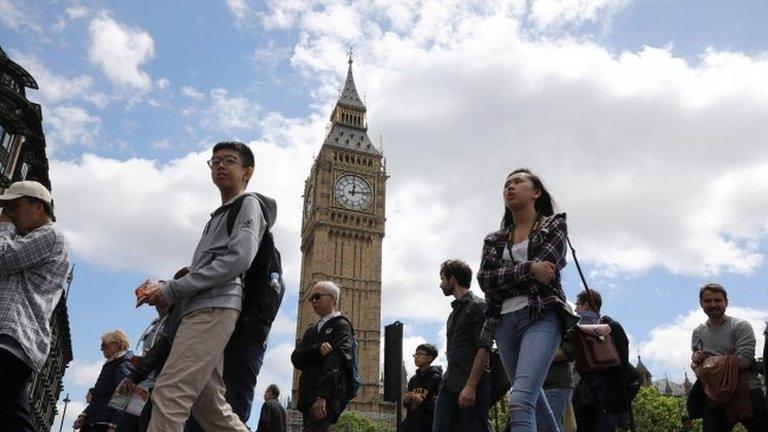
- Published14 June 2017
